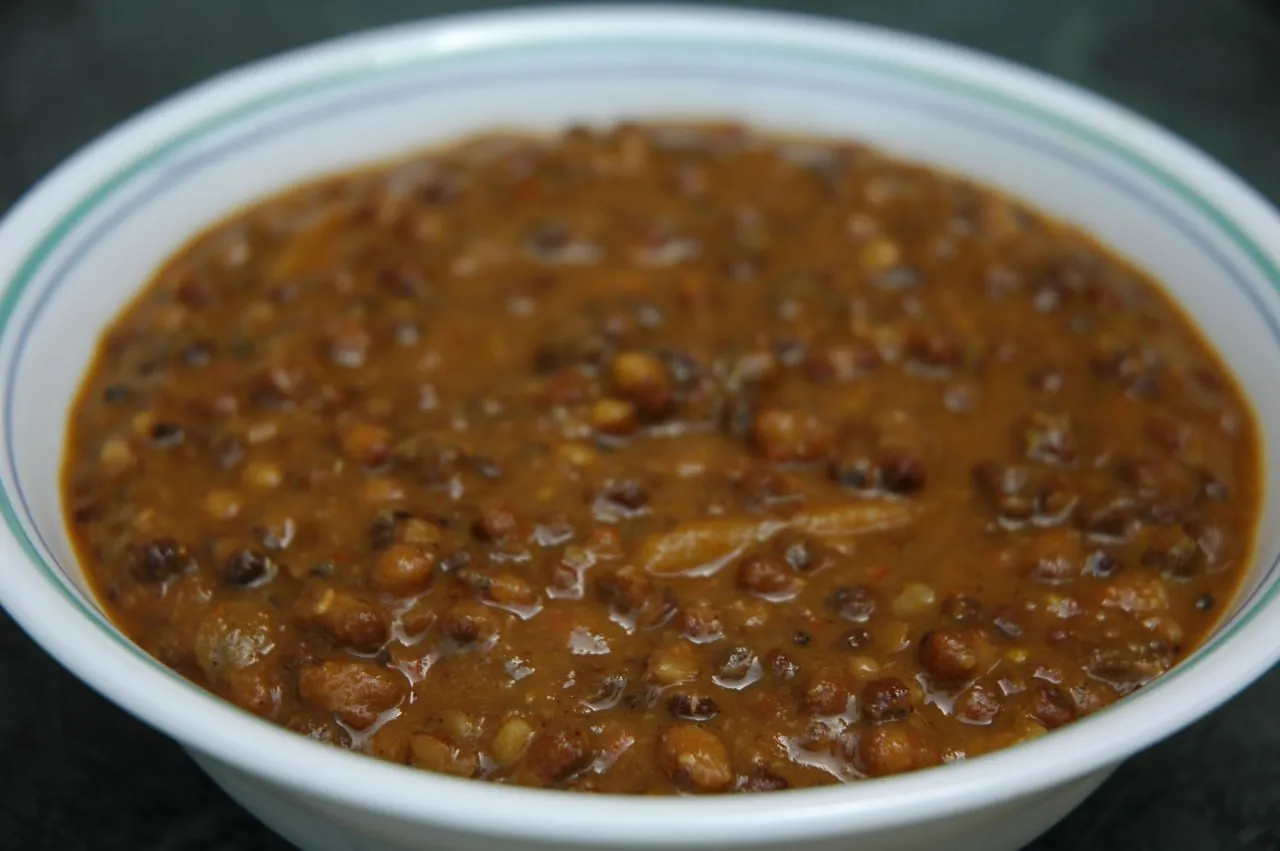
Horse gram, a legume often found in India, is purportedly helpful in preventing and treating kidney stones. Nevertheless, scientific evidence supporting this claim is limited. It’s crucial to consult a healthcare professional rather than relying solely on its perceived benefits. Still, here’s a look at how horse gram might aid in managing kidney stones:
- Diuretic Effect: Horse gram is believed to have diuretic properties; therefore, it may increase urine production. This, in turn, can help flush out toxins and small stones from the kidneys, consequently reducing the risk of stone formation.
- Reducing Stone Formation: Some traditional practices suggest that regular consumption of horse gram may help prevent the formation of certain types of kidney stones, such as calcium oxalate stones. Additionally, it is thought to reduce the concentration of oxalates in the urine, which can contribute to stone formation. Conversely, while horse gram might aid in preventing kidney stones, it’s essential to consider various factors influencing individual health.
- Rich in Nutrients: Horse gram is nutritious; additionally, it provides essential vitamins, minerals, and dietary fiber. Moreover, a balanced diet can promote overall kidney health and reduce the risk of developing kidney stones. This legume, known for its nutritional value, contributes significantly to maintaining a healthy lifestyle.
Kidney Stones and Medical Intervention
While horse gram may offer potential benefits, it’s crucial to note that it shouldn’t be solely relied upon for treating kidney stones. Kidney stones vary in size and composition. Therefore, medical intervention, including medications, dietary modifications, and, in some cases, surgical procedures, is essential. Additionally, managing kidney stones involves a multifaceted approach, not limited to any single remedy or treatment.

If you suspect kidney stones or have a history of them, seek advice from a healthcare professional. They can offer guidance on dietary choices and other measures to manage stones effectively. Moreover, they’ll provide an accurate diagnosis and a personalized treatment plan.
What is Horse Gram Water?
Horse Gram Water, also known as Kulthi Dal, has been renowned for its health benefits across generations. Additionally, originating from India, Horse Gram is a type of legume known for its rich nutrient profile.
This versatile legume, often consumed as a soup or in various culinary dishes, packs a powerful nutritional punch. Moreover, its high protein, iron, and calcium content make it a valuable addition to vegetarian and vegan diets. Cultivated in diverse climates, Horse Gram’s resilience and nutritional value have made it a staple in many regional cuisines.
Health Benefits of Horse Gram Water
Diuretic Properties
The diuretic properties of horse gram, consequently, refer to its ability to promote increased urine production. This effect aids in flushing out toxins and potentially small stones from the kidneys. Moreover, it helps in reducing the risk of stone formation. This quality is valuable, particularly in managing certain types of kidney stones, such as calcium oxalate stones. By potentially reducing the concentration of oxalates in the urine, a contributing factor to stone formation, horse gram plays a significant role in kidney stone management.
Managing Kidney Stones
Managing kidney stones using horse gram involves leveraging its potential diuretic properties and nutritional content. Horse gram is believed to aid in preventing certain types of kidney stones, especially calcium oxalate stones, by potentially reducing oxalate concentration in urine. Additionally, its diuretic nature might promote increased urination, assisting in flushing out toxins and small stones from the kidneys. However, while horse gram could be a supportive element in kidney stone management, it’s essential to consult a healthcare professional for a comprehensive treatment plan, as kidney stone management often requires medical intervention and dietary modifications.

Nutritional Content
Horse gram is a nutritional powerhouse, packed with essential nutrients. It’s rich in proteins, fiber, iron, calcium, and various vitamins, including vitamin C and vitamin B complex. This legume is low in fat and sodium but high in carbohydrates, making it a versatile and beneficial addition to a balanced diet.
Boosting Immunity
Boosting immunity using horse gram involves leveraging the nutrient-rich properties of this legume to enhance the body’s defense mechanism. Horse gram is believed to contain antioxidants, vitamins, and minerals that support immune function, helping the body combat illnesses and infections more effectively. Regular consumption of horse gram, known for its potential in strengthening immunity, contributes to overall health and wellbeing.
Aiding Digestion
Horse gram is believed to aid digestion due to its rich fiber content. Consuming horse gram can potentially alleviate digestive discomfort and promote gut health. The fiber in horse gram helps in regulating bowel movements, improving digestion, and reducing gastrointestinal issues.
Weight Management
Horse gram, with its low-calorie content and high protein, is a beneficial addition to weight management plans. Its nutritional profile aids in providing a sense of fullness while supporting muscle building. Incorporating horse gram into the diet, along with a balanced approach to eating and exercise, may contribute to effective weight management.
Beneficial for Skin and Hair
Horse gram, known for its antioxidant properties, is believed to offer benefits for skin and hair health. Its antioxidant content aids in fighting free radicals, contributing to healthier skin and potentially promoting hair vitality. Regular consumption or topical application of horse gram may offer nourishment, contributing to radiant skin and healthier hair.
Detoxifying Properties
The detoxifying properties of horse gram stem from its rich nutrient profile, specifically its diuretic nature. Its ability to increase urine production aids in flushing out toxins from the body. This process contributes to cleansing the system, eliminating harmful substances, and promoting overall detoxification.
Usage and Preparation
How to Prepare Horse Gram Water
Simple methods make it easy to include in your daily routine. Preparing Horse Gram Water is quite simple. Start by rinsing the horse gram thoroughly. Then, soak it overnight in water. The following day, boil the soaked horse gram in clean water until it softens and releases its essence. Strain the water, and it’s ready for consumption. You can flavor it with a dash of lemon or add spices for variation. Remember, moderation and proper consultation are key before making it a regular part of your diet.
Recommended Dosage
The recommended dosage for Horse Gram Water typically involves moderate consumption. While there isn’t a universally prescribed amount, it’s advisable to seek guidance from a healthcare professional to determine the suitable quantity based on individual health conditions and goals. Moderation is key to reaping the potential benefits without overexposure to any adverse effects.
Precautions and Side Effects
While beneficial, excessive consumption may lead to potential side effects in some individuals. When considering Horse Gram Water, it’s essential to acknowledge potential precautions and side effects. While this legume offers numerous health benefits, excessive consumption might lead to adverse effects in some individuals. It’s advisable to exercise moderation and consult a healthcare professional before incorporating it into your regular diet. Keep an eye out for any allergic reactions or digestive issues that might arise and seek guidance to ensure a safe and balanced intake.
Conclusion
Drinking Horse Gram Water can significantly contribute to overall health. However, it’s advisable to seek professional guidance before making it a regular part of your diet.
Moderation is key. Consult a professional before daily consumption.
Its low-calorie content and high protein can aid in weight management.
It’s advisable to consult a doctor before consuming during pregnancy.
Some individuals may have allergic reactions. Monitor for any adverse effects.
Soaking can aid in its digestion, but it’s not mandatory.







